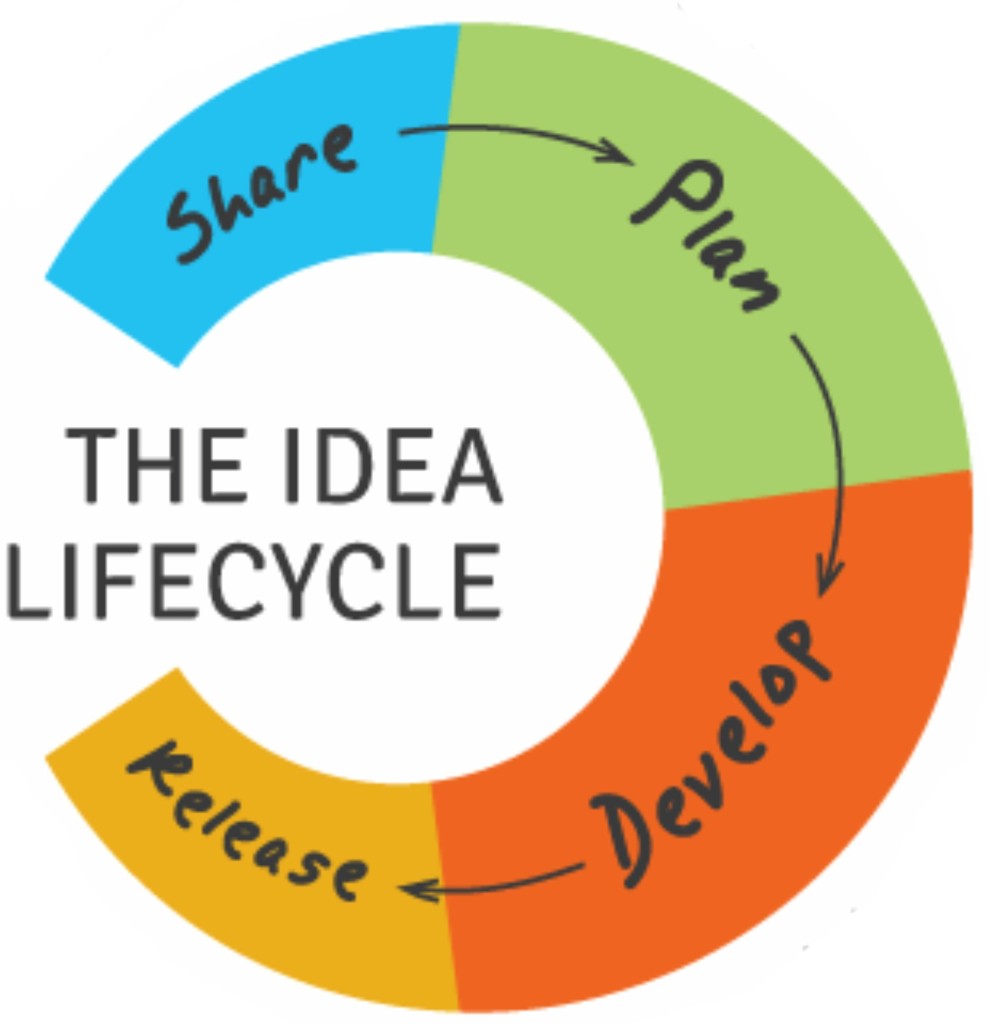When you have decided to launch, the next challenge is to get your ideas to spread. If you have not gotten to the point of launching, then the challenge is to build enough confidence in your brand/idea for take-off. There are important tips at this stage that are necessary for your dreams to remain alive and viable. If you’re still looking for ideas, perhaps you may want to read my previous article on Three Ideas About Ideas.
1) Upgrading Your Connections:
When you want to build or spread your ideas, the first thing you check is your network of contacts. Ideas flourish more with people of similar thinking who have worked or are working on similar ideas. No lone-ranger goes too far; you are better served identifying a hub or social network account that actively follows your interests. I see people who want to own Tech companies for instance, or NGOs, spending time following more music artists and Football Channels than Tech or NGO sites. The reality is that you don’t get too far with those ideas when you’re not regularly around the kind of people or information that helps you push them. Associating to rub minds ultimately rubs off on your mentality while improving the value of your ideas. The quality of your connections will determine the number of opportunities you get to spread your ideas through funding opportunities and pitching exercises.
2) Communicating Standards:
Everybody turns into a ‘Yes’ man when fielding questions from job interviewers or preparing proposals for potential investors. We’re usually so desperate for the job or funding that we are often tempted to bring our standards low. Sometimes though, it is our (over) willingness to step down the standards that convinces them not to part with their money or job – that’s what a few months of fund-raising and applications have shown me, as I’ve seen some rudiments of successful and failed attempts.
Your product is not for every investor, just as you cannot do certain things just because you have a job; you should be able to communicate that. In fact, the higher your standards, the better your chances. Investors may not have the capacity to meet your standard at first, but they would rather prefer to negotiate a lower standard that they can pay for, than spread their cash on one with no standards.
Technology can help communicate standards. Qualitative data analysis software programs like Atlas.ti allow researchers to create and apply standardized coding schemes across projects or research teams. Collaborative functionalities within these software platforms enable multiple researchers to work together on the same dataset simultaneously. This fosters collaboration and ensures that all team members adhere to the established standards and protocols throughout the analysis process.
3) Regimentation Exercises:
When you give your word on your project, you go on to cut off whatever may not help you deliver on your promise. Brands are built on the promise, and once word is out about what you offer, it’s your duty to live up to the promise. You may have to check your friendships, leisure time, and everything that could come in the way of putting quality out there. This follows up from communicating standards, as you don’t want adverts, investors, or content that lowers the standard of what you’re trying to achieve. Regimentation makes you lean enough to soar.
4) Communicating Integrity:
You should not be in business without integrity, so pitching that your idea is built on integrity is more like business jargon. We need to be shown, not told. Do you recognize sources, inputs, partners and other people for their work, adequately? What international standard is your product based upon? Are your co-workers certified for the business you all are doing? Communicating integrity takes time and effort but will ultimately pay off. We need to know that in dealing with your business, we are dealing with an enterprise whose foundation is based on professionalism.
5) Spread the Idea & Get Feedback:
Great ideas can never be stolen completely no matter how much they are replicated. Many people/investors see ideas as trash and are just too willing to lay their hands on just anyone that is profitable for them. So it’s important to spread your ideas through social media and get feedback from geeks, investors, as well as potential customers. Get on board.
Rather than simply stating that your business operates with integrity, show it through your actions. This could include transparent business practices, fair treatment of employees and partners, and ethical decision-making processes. Acknowledge and appreciate the contributions of others involved in your business, whether they are employees, partners, or suppliers. Giving credit where it’s due demonstrates respect and integrity.
Ensure your employees are adequately trained for their roles within the business. This not only enhances professionalism but also instills confidence in customers and partners. Maintain open and honest communication with stakeholders. This includes being upfront about your business practices, policies, and any potential conflicts of interest.
Actively solicit feedback from customers, partners, and employees to identify areas for improvement and ensure that your business practices align with their expectations. As a business leader, embody the values of integrity and professionalism in your conduct.
————————————————————————————————————
AUTHOR – JOSHUA IHEJIAMAIZU
Joshua Ihejiamaizu is a Writer, Engineer and ICT Expert in the making! He blogs at Josoft Blog, where he connects, enlightens, and inspires people of different backgrounds and thought processes in Nigeria, with some deep thoughts and perspectives. Follow him on Twitter via @Mr_genteel

